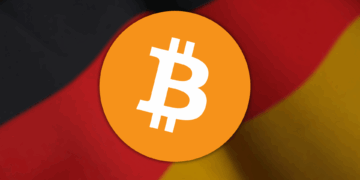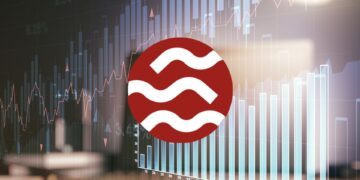Liquidity generally refers to how easily a particular asset can be bought or sold without affecting its price. We say that the market is “highly liquid” if there is a lot of activity and volume with many traders buying and selling a particular asset. On the other hand, low liquidity means it is harder to buy and sell an investment and usually leads to substantial price swings.
To understand how Liquidity Pools work, we must first understand how traditional order books work on centralized exchanges. As traders, we want to make money. Thus there is always a group of sellers that want to sell something at the highest possible price and a group of buyers that want to buy that thing at the lowest possible price. The cost of an asset is determined by their agreement, somewhere in the middle.
On centralized exchanges, you can take a look at sell and buy orders that are currently listed. Below are pictures of an order book and a grid view by depth. On significant exchanges, thousands of people list their orders at any given moment, determining the price, where bids and asks on the coin converge in the middle.
Here is a catch when it comes to decentralized exchanges, though. Maintaining an order book such as this on the blockchain would result in a slow and ineffective process, with high gas fees and an overall poor user experience.
So, to bypass this tedious process used in traditional finance, builders and innovators came up with the idea that changed how we trade. By using Liquidity Pools, we can conduct trades without the need for a central authority or intermediary that is in charge and responsible for maintaining an organized list of orders.
Liquidity pools rely on Automated Market Makers to determine the prices of the assets within them. For this reason, it is highly recommended you check out our article on Automated Market Makers and then return to this one.
What are liquidity pools, and how do they work?
A liquidity pool is a smart contract written in a way that stores funds, allows trades to occur between them, and calculates the price based on the number of tokens available. The pool (usually) contains two assets, which are represented as a trading pair.
For example, in a BNB/BUSD liquidity pool, a trader can buy BNB tokens by selling their BUSD stablecoins. This results in an influx of BUSD tokens, thus pushing the price of BNB up. The pool will adjust the prices automatically using an algorithm discussed in depth in our AMM article.
Because the process is decentralized, it requires participation from the community members that wish to add funds to the pool.
These participants are called liquidity providers and are rewarded for their service by receiving a percentage of trading fees. You can become a liquidity provider for a DEX and earn rewards based on the number of tokens you wish to contribute to the pool. To learn more, check out our article on yield farms.
There are some challenges involved with this investment. The smaller the pool is, the less stable the price becomes because it takes less buy or sell pressure to move it in either direction, which brings us to the next important topic.
The Risk Of Impermanent Loss
On the one hand, you can make quite a lot of money by providing liquidity because you are being rewarded for locking up your funds by earning fees on all the trades executed in that liquidity pool. However, this works best if the price of the assets in question does not fluctuate much.
The more significant the shift in price, up or down, the more you would lose (or gain) if you withdraw your deposit. This is where to old cryptocurrency saying “you don’t lose until you sell” applies. Since it is not an actual loss or gain until you take that money out, it is referred to as “impermanent.” However, this does not eliminate the risk, and we have seen many coins in the past simply not bouncing back to their previous levels – especially smaller coins by market cap.
This risk can be mitigated to a certain extent by only investing money in larger pools with well-known cryptos.
Naturally, a pool of $5000 TVL (Total Value Locked) in it is prone to have a drastically different price impact on a particular trade than a pool with $5 million of value locked in it. These prices are primarily synchronized between all CEXs and DEXs as arbitrage bots make short work of discrepancies. The bigger the market cap of the cryptocurrency, the fewer differences in price between exchanges tend to occur.
Summary and key takeaways
- Centralized exchanges use an order book to conduct trades between buyers and sellers. This is impractical when it comes to DeFi.
- Automated Market Maker is a system that utilizes smart contracts to balance the price of an asset in a liquidity pool.
- Automated Market Makers are one of the most significant innovations in DeFi. Without them, it would be impossible to set up on-chain decentralized exchanges.
- Liquidity Pools are smart contracts that store tokens and allow trading between two assets. Anyone can provide liquidity to a pool.
- There are risks of impermanent loss involved with providing liquidity.
- The more extensive the pool, the more stable the price.















